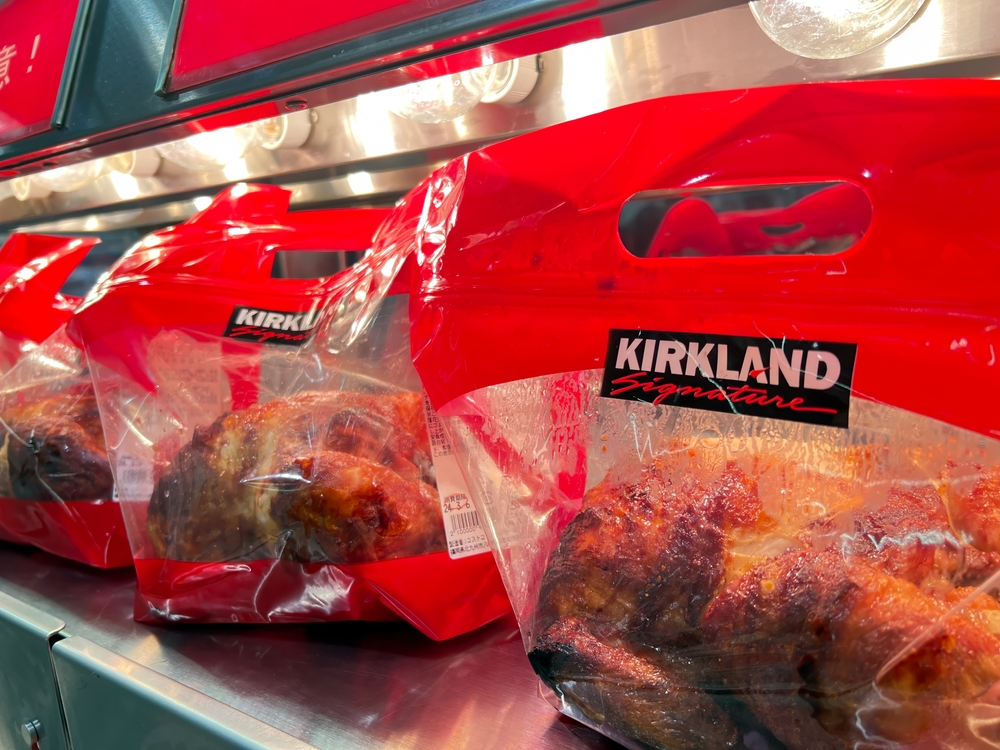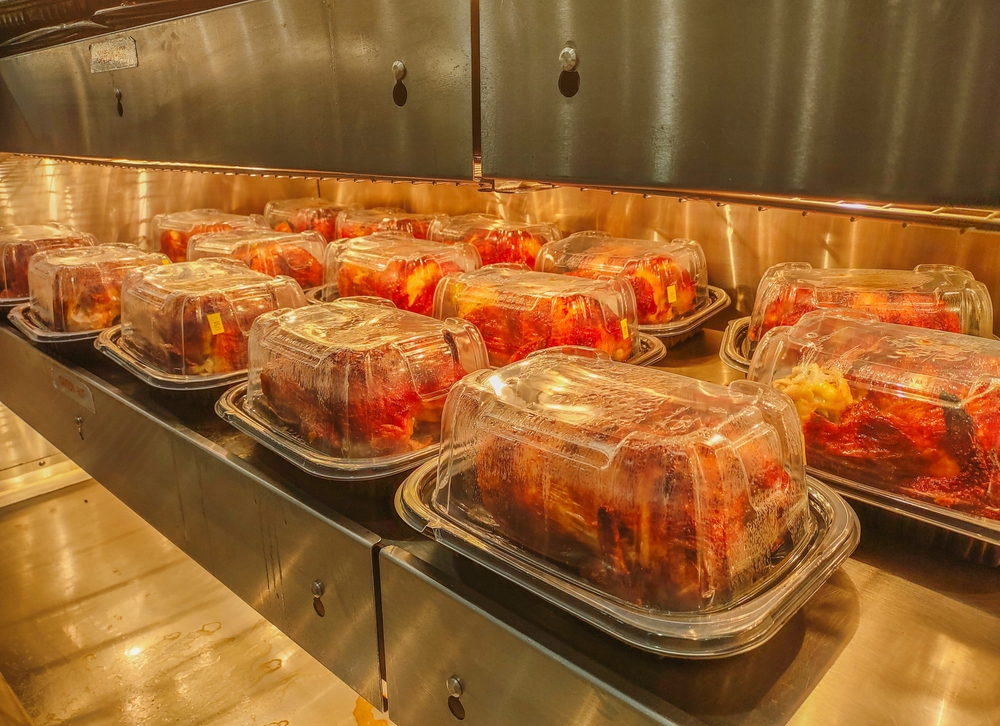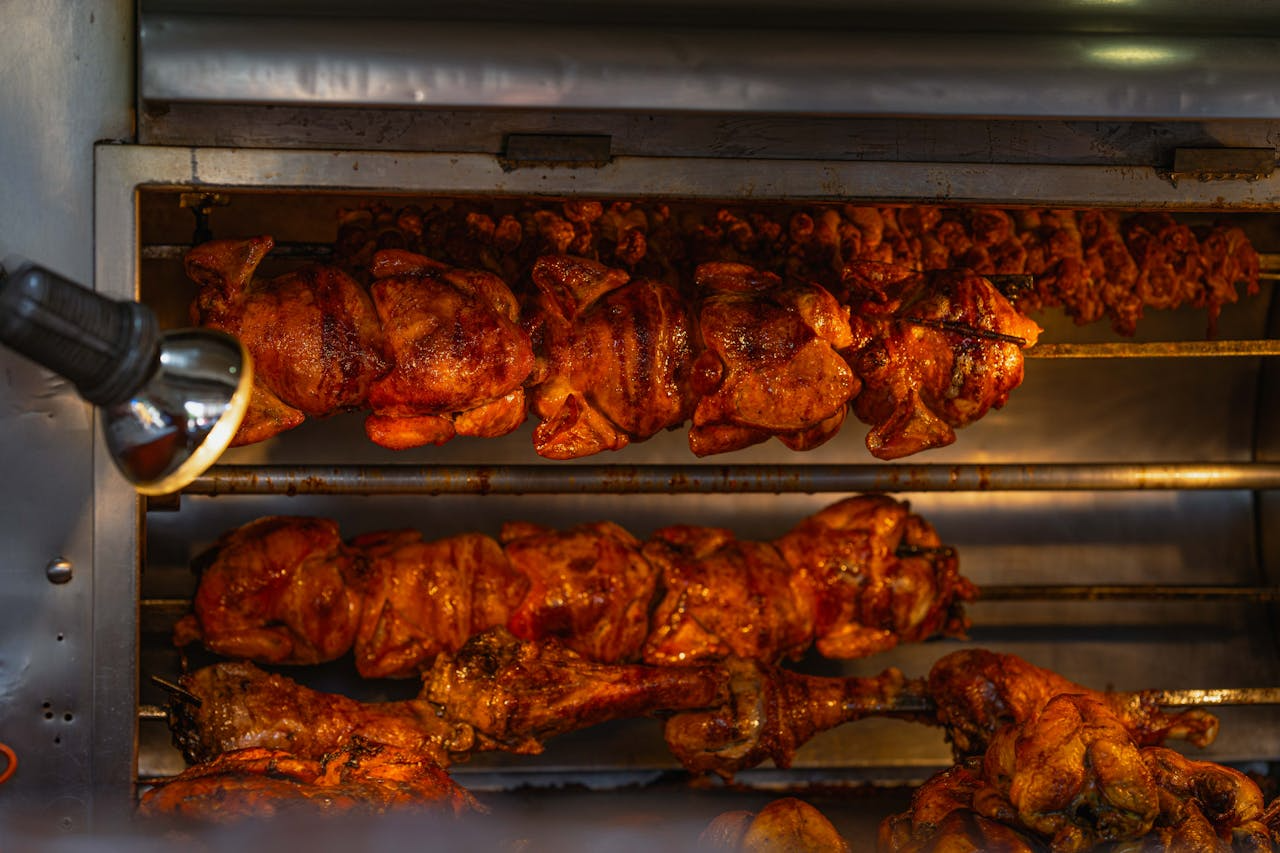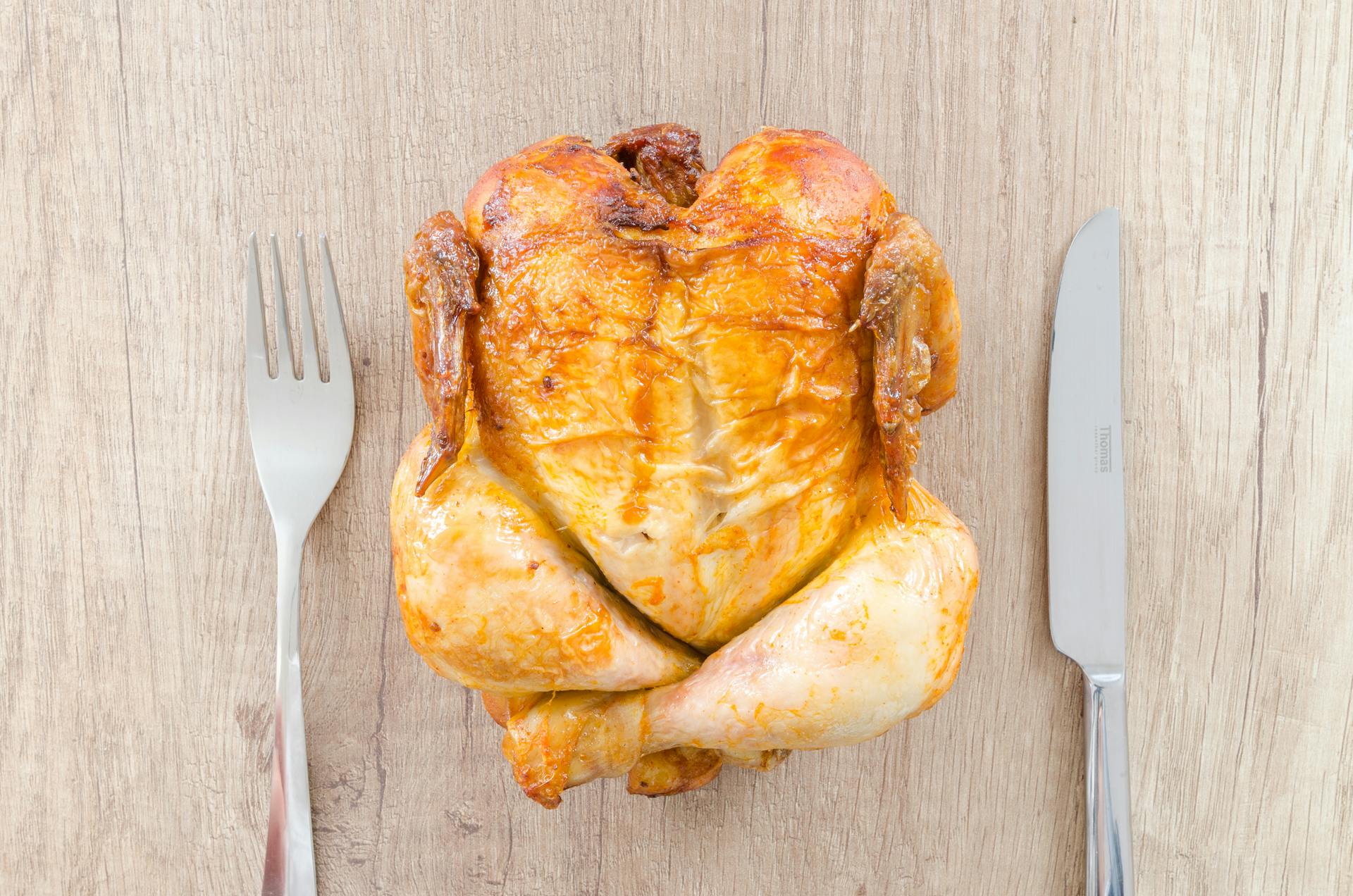Why Is Rotisserie Chicken Bad For You
Rotisserie Chicken Costco

Rotisserie chicken has become a grocery store staple. It’s hot, ready to eat, affordable, and seemingly healthier than fast food. Costco’s $6 bird is so popular it has its own fanbase. But despite the convenience, many health-conscious consumers are asking the right question: Is rotisserie chicken actually good for you? Or is it just cleverly marketed comfort food in disguise?
WHAT’S IN A COSTCO ROTISSERIE CHICKEN?
At $6 for a whole cooked bird, it sounds like a great deal, and it is, financially. In fact, Costco sells these chickens at a loss (a classic loss leader) to get you into the store. But when something seems too good to be true, it often is.
HERE ARE THE 10 LISTED INGREDIENTS IN A COSTCO ROTISSERIE CHICKEN:
Chicken: Factory-farmed, raised on corn and soy feed, likely treated with antibiotics and vaccines. Definitely not organic.
Water: Injected to increase weight and juiciness.
Salt: Contributes to high sodium content.
Sodium phosphate: A preservative and texture enhancer.
Modified food starch: Often made from potato or tapioca, can spike blood sugar.
Potato dextrin: Impacts gut health, alters gut bacteria.
Carrageenan: A seaweed-based thickener linked to inflammation and digestive issues.
Sugar: Minimal, but unnecessary.
Dextrose: A refined sugar that can contribute to insulin resistance and other health issues.
Spice extractives: Concentrated, processed flavorings.
The 11th Ingredient? Plastic?
Let’s not overlook what might be the most concerning “ingredient” of all: plastic. Rotisserie chickens often sit in plastic containers under heat lamps for hours, sometimes all day. This raises red flags because heat can cause plastics to leach chemicals like phthalates and BPA into food, especially into fatty items like chicken skin and juices.
This concern mirrors what we’ve seen in the bottled water industry, where studies have shown that many major brands contain microplastics. These tiny plastic particles often come from the bottles themselves, shedding into the water when exposed to heat, friction, or time. If microplastics can contaminate water, imagine what prolonged heat does to food in warm plastic trays. While we don’t have lab results on rotisserie packaging, the risk of chemical exposure from hot plastic is real and it’s another reason to think twice before grabbing that “convenient” chicken.

IS ROTISSERIE CHICKEN HEALTHY?
That depends on where you get it and how much of it you eat. If you're buying rotisserie chicken regularly as a "healthy" option, it's worth examining what’s under the hood.
✅ PROS
- High in protein
- Convenient
- Cheaper than takeout
- Can be relatively clean if you strip the skin
❌ CONS
- Very high in sodium (one serving may contain over 500mg, or 20%+ of your daily intake)
- Often contains preservatives, sugars, and additives
- Frequently cooked in or stored with plastics
- Comes from factory-farmed sources
Rotisserie Chicken Nutrition: A Breakdown
| Item | Calories | Protein | Fat | Sodium |
| 3 oz (skin-on) rotisserie chicken |
~170 |
23g |
8g |
550mg |
| Whole chicken (avg. Costco) |
~1,000–1,200 |
~120g |
~60g |
2,500–3,000mg |
Tip: Removing the skin and visible fat can cut sodium and fat almost in half.
Walmart Rotisserie Chicken Nutrition
Walmart’s birds contain similar ingredients to Costco, with sodium phosphate, dextrose, and natural flavorings among them. However, they’re slightly smaller and slightly more expensive per pound.
Walmart rotisserie chicken calories (3 oz serving):
~170–180 calories
Whole chicken calories ~1,000–1,200
Sodium: ~550–600mg
Ingredients: Chicken, water, salt, modified food starch, sugar, and “natural flavorings.”
So again, not awful in moderation, but not clean eating either.
Why Non-organic Grocery Store Rotisserie Chicken Has 10+ Ingredients
For a chicken to sit hot for hours and still taste moist and flavorful, it needs help. That help comes in the form of chemical preservatives, flavor enhancers, and moisture retainers. Carrageenan and modified food starch are not what most people think of when they say “just chicken.” And while the individual doses may be within FDA limits, eating processed additives regularly, especially for people with gut sensitivities, autoimmune conditions, or blood sugar issues, can have a cumulative effect.
HOW LONG IS ROTISSERIE CHICKEN GOOD IN THE FRIDGE?
Rotisserie chicken is good in the fridge for 3 to 4 days when stored properly in an airtight container or tightly wrapped to prevent bacteria growth and moisture loss. If you plan to eat leftovers, be sure to reheat the chicken to an internal temperature of 165°F (74°C) to kill any potential bacteria. Use a meat thermometer to check the thickest part of the meat, especially near the bone. For best results when reheating, preheat your oven to 350°F (175°C) and heat the chicken for 20 to 25 minutes, adjusting for portion size.
To keep it moist, place the chicken in an oven-safe dish with a splash of broth or water and cover it with foil. Always avoid reheating at low temps (under 250°F), as this can allow bacteria to multiply rather than be destroyed. If the chicken develops a sour smell, slimy texture, or discoloration, it’s best to throw it out. For longer storage, rotisserie chicken can be frozen for up to 4 months without a significant loss in quality.

best rotisserie chicken
Yes, but you’ll pay for it.
🟢 WHOLE FOODS Often organic, pasture-raised, and free from additives.
Ingredients: Just chicken.
Price: $7.99
🟡 SPROUTS MARKET
Non-herbed version: Just chicken
Herbed version: Chicken + sea salt, vinegar, onion & garlic extract, and some soybean oil
Price: $8.99–$9.99
Final Thoughts: Should You Stop Eating Rotisserie Chicken?
Not necessarily, but know what you're buying.
✔️ if you're in a pinch: rotisserie chicken can still be better than fast food or frozen meals.
❗ if you're eating it weekly: consider rotating in higher-quality sources, or making your own. if you're focused on clean eating: avoid birds with 10+ ingredients and stick to minimal-ingredient options like those at whole foods or homemade versions.
Pure Pitcher
On Sale
Say goodbye to undesirable heavy metals, trace pharmaceuticals, fluoride and PFAS, often referred to as the "Forever Chemical," all courtesy of our state-of-the-art filtration innovation.
Pure Dispenser
On Sale
Embrace the ease of pure, uncontaminated hydration with the Pure Dispenser, the perfect solution for health-conscious individuals seeking a safer and superior way to stay optimally hydrated. Featuring the same award-winning filtration technology as our renowned Pure Water Filter Pitcher, the Pure Dispenser delivers exceptional water quality, removing over 200 contaminants effortlessly. It's hydration, redefined.



Share:
Folic Acid Side Effects
Dead Hang Benefits